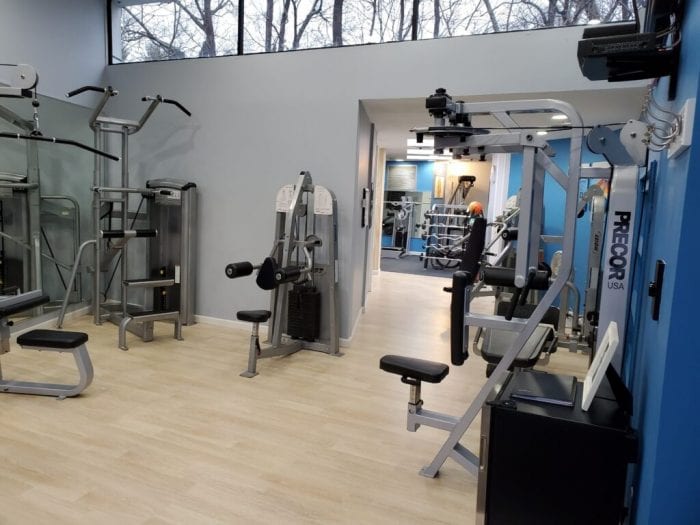Gym Owners Anxious to Reopen, Expect to Adapt Post-COVID

The effects of COVID-19 will no doubt change how businesses and customers interact. For gyms and fitness centers that could be challenging. Drastic measures may have to be taken in these facilities normally filled with people, sweat and germs.
And with Long Island finally having started Phase 1 of the reopening process, gyms will have to wait longer than most to get back to some semblance of normality.
Anthony Amen, owner of Redefine Fitness in Mount Sinai, didn’t have much time to react to the news of Gov. Andrew Cuomo’s (D) shutdown order in March. He was busy training with a few clients.
“We found out that morning and we were forced to close on the spot at 8 p.m.,” he said.
Initially, Amen and other gym owners thought they would only be closed for a couple weeks, but that hope quickly faded as the magnitude of the coronavirus pandemic became evident.
“It was tough, I was like, ‘What the hell am I going to do?’” Amen said.
The gym lost 80 percent of its clients due to the shutdown. In an effort to keep some of them on his books, the Mount Sinai gym owner had to get creative and began offering virtual fitness classes.
“We had to adapt to the times,” Amen said. “We try to keep them on track with their goals and work with them as much as we can virtually.”
Amen said the industry had been evolving toward incorporating more online training even before the pandemic.
“The shift toward online personal training has been coming, COVID-19 just sped it up,” he said. “The next phase will be an online/in-person training hybrid model.”
That shift and subsequent social distancing guidelines could cause several issues for larger gyms that thrive on constant foot traffic and by offering a plethora of gym equipment and machines. These facilities are used to cramming equipment side by side and will most likely have to spread out equipment, which in turn could lead to reduced capacity.
In Hong Kong, some gyms have installed plexiglass barriers to give exercisers space and to keep any potential virus from spreading. In the U.S., larger gyms are poised to offer touchless entry, and increased cleaning, among other things. Retro Fitness, which has close to 10 locations on Long Island, has said it will scrub down equipment using hospital-grade cleaner throughout the entire gym, according to a press release.
Amen said for smaller gyms/studios like his, that process will be much easier.
“We can definitely make more space by moving equipment — we can easily have one or two people come in and be able to be 6 feet apart,” he said.
The Mount Sinai gym owner is hoping he can acquire some new clients, saying he could see some people not being comfortable going to their old crowded gym and wanting to be around less people in general.
The question of when will gyms reopen still looms large. If you look at the state’s four-phase reopening process, gyms are in Phase 3. Given how Suffolk County finally reached Phase 1 reopening this week, it’s not a stretch that it could take several more weeks or even longer until gyms get the OK to open its door again.
Nanci Huner, who runs Huners Fitness Advantage in Port Jefferson along with her husband Eric, said she believes they are an essential business and should be allowed to be open.
Huners Fitness provides personal training, nutrition counseling and private and small group training. Their clients are mostly individuals in their 60s through 70s who rely on their services to stay active and remain healthy.
“A lot of these people that come to us have diabetes, high blood pressure and other problems,” Nanci Huner said. “Exercising makes a big difference.”
Huner said it is essential for those clients to get structured exercise, as in some cases it increases their mobility and it makes it less likely that they could lose their balance and fall.
“For a few of them it’s about keeping them from getting hurt and with us being closed, they are negatively affected by the lack of exercise,” she said.
While they wait to reopen, Huner is optimistic that they can adapt to the potential new business climate. At most, there are four clients at their group sessions and even less personal one-on-one classes.
Equipment spacing shouldn’t be a problem either, according to Huner. Before COVID-19 struck, the duo had moved in its fitness center to a warehouse space on North Country Road. Prior to that, for 15 years, they ran their business from their own home.
The move happened so close to the shutdown that Huner said they didn’t even have time to put up their new sign in front of the building.
“We’re hoping we can reopen as soon as possible,” she said.






